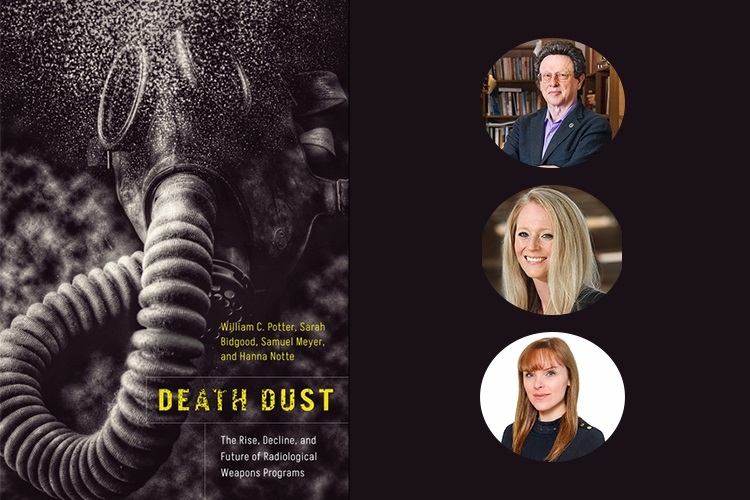Middlebury Team Makes Finals of National Anti-Extremism Competition
| by Mark C. Anderson
A multidisciplinary group of Institute students traveled to D.C. to present the AI tool they developed in the national finals of Invent2Prevent.

The often-minimized threat of dirty bombs may be rising, with countries instead of terrorist groups expressing interest in this cheaper weapon.
That’s according to a new book by three researchers with the James Martin Center for Nonproliferation Studies (CNS): Death Dust: The Rise, Decline, and Future of Radiological Weapons Programs.
“As the norm against nuclear weapons is weakening and tensions between great powers mount, there is reason to worry that the dangers posed by radiological arms proliferation may be growing again,” write William Potter, Sarah Bidgood, and Hanna Notte.
The history of “dirty bombs,” described as explosives used to disperse radioactive material, is largely unknown. Potter, Bidgood, and Notte compared case studies from five nations that had either expressed interest in better understanding the capabilities of the “poor man’s nuclear weapon” or had actively pursued creating them.
Professor William Potter is the founder of CNS and currently serves as director. Hanna Notte is the director of the Eurasia Nonproliferation Program and Sarah Bidgood is a nonresident scholar at the center.
Read Why the World Should Still Worry About Dirty Bombs in Foreign Affairs.
Nonproliferation and Terrorism Studies
James Martin Center for Nonproliferation Studies
| by Mark C. Anderson
A multidisciplinary group of Institute students traveled to D.C. to present the AI tool they developed in the national finals of Invent2Prevent.
| by Sierra Abukins
If you need to find some hope in these dark times, tune in to Professor Jeffrey Lewis’s podcast highlighting unsung heroes preventing global catastrophe.
| by Sierra Abukins
Halle Shephard was recently selected as one of 30 youth from 12 countries who traveled to Japan for a conference on creating a more secure and peaceful world.